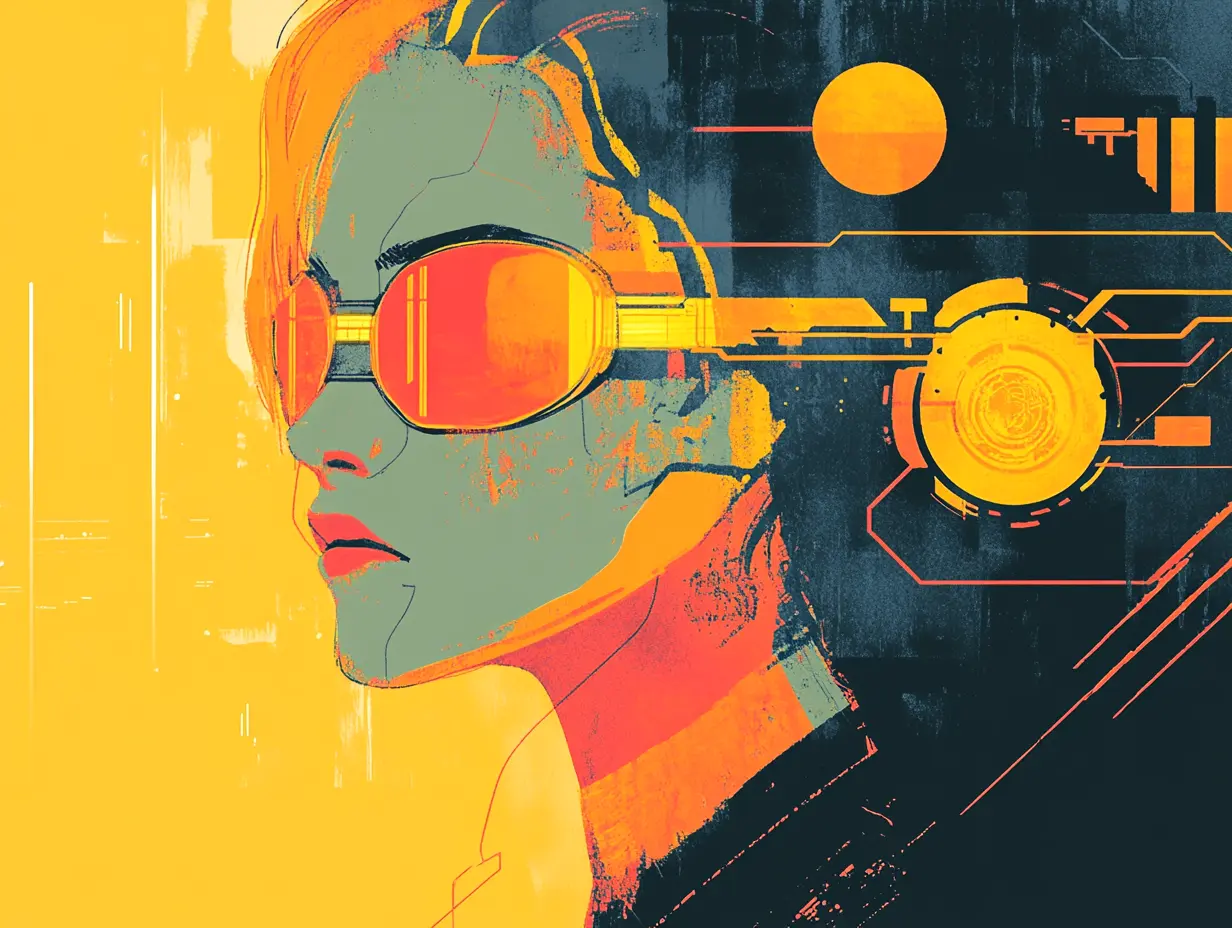In 2025, AI Agents are going to reshape the world, changing a lot of things across industries.
They are designed to automate tasks, make decisions, and engage intelligently with their environment.
This guide explores the different types of AI agents, their practical applications, and their potential impact on the future.
Understanding AI Agents
AI agents are systems, either in software or hardware form, that leverage AI techniques to interpret information and act autonomously. They can automate processes, learn from experiences, and quickly adjust to new scenarios. By perceiving their environment through sensors and responding with actuators, they play a pivotal role in technological ecosystems.
Key Characteristics of AI Agents
- Autonomy: Function without human intervention.
- Adaptability: Improve and adjust from experiences and new data.
- Interaction: Engage with their environment and users to achieve tasks.
- Decision-Making: Use algorithms to make informed choices based on available data.
Types of AI Agents
AI agents come in various forms, each designed for specific functions:
1. Simple Reflex Agents
Operate based on condition-action rules with no memory of past actions.
- Example: A thermostat that turns on a heater when temperatures fall below a set point.
2. Model-Based Reflex Agents
Use internal models to make decisions by considering unseen aspects.
- Example: Security systems that differentiate between normal activities and potential threats.
3. Goal-Based Agents
Aim for specific outcomes by planning actions that lead to desired goals.
- Example: A fitness tracker guiding users toward achieving daily exercise goals.
4. Utility-Based Agents
Strive to optimize a performance measure, evaluating the quality of outcomes.
- Example: Systems recommending products to maximize user satisfaction.
5. Learning Agents
Improve performance through learning from interactions and feedback.
- Example: E-commerce platforms offering personalized recommendations based on user behavior.
6. Hierarchical Agents
Use a multi-level structure, delegating tasks from higher-level to sub-level agents.
- Example: A logistics system where top-level agents handle overall strategies while others manage specific tasks.
7. Multi-Agent Systems
Comprise multiple agents working collaboratively or competitively.
- Example: Swarms of drones mapping terrains for agricultural monitoring.
Additional Types
- LLM Agents: Utilize large language models for sophisticated conversational tasks.
- Belief-Desire-Intention Agents: Mimic human-like reasoning, driven by beliefs and desires.
- Logic-Based Agents: Utilize logical reasoning for decision-making.
Real-World Applications of AI Agents in 2025
AI agents are revolutionizing diverse sectors, enhancing efficiency, and improving user experiences. Here's how they're being employed:
1. E-Commerce
- Personalized Recommendations: Amazon's recommendation engine generates 35% of its revenue through AI-driven personalization.
- Automated Order Processing: Efficiently manages logistics for timely deliveries.
- Dynamic Pricing: Adjusts prices in real-time based on demand and competition.
2. Sales and Marketing
- Lead Generation: AI tools boost lead qualification by up to 50%.
- Personalized Communications: Enhance campaign engagement and conversion rates.
- Email Marketing: AI optimizes targeting, increasing open and conversion rates.
3. Customer Support
- Complex Issue Handling: AI handles detailed support tasks like resolving queries.
- Ticket Reduction: Significant drop in customer service requests with AI.
4. Hospitality
- Guest Experience: AI agents provide multilingual and around-the-clock assistance.
- Efficient Check-in/Check-out: Automate processes to reduce wait times.
5. Healthcare
- Diagnosis and Treatment: AI assists in interpreting medical images for accurate diagnoses.
- Robotic Surgery: Enhances precision in surgical procedures.
6. Finance
- Fraud Detection: AI systems secure transactions, reducing fraud by up to 70%.
- Portfolio Optimization: Offers strategic investment insights.
7. Manufacturing
- Predictive Maintenance: Forecasts equipment failures, optimizing maintenance schedules.
- Quality Control: Automates inspection to ensure product quality.
8. Retail
- Product Recommendations: Targeted suggestions improve customer satisfaction.
- Inventory Management: Streamlines stock replenishment.
9. Urban Planning
- Data-Driven Planning: AI aids in designing efficient urban layouts.
10. Cybersecurity
- Anomaly Detection: Monitors networks, quickly responding to threats.
The Growing Impact of AI Agents
The global AI agents market reached approximately USD 3.66 billion in 2023, with North America leading at 37.92% market share. This growth highlights the widespread adoption of AI agents, with expectations for continued expansion in the coming years.
Benefits and Future Impact
The benefits of AI agents extend across sectors:
- Improving Efficiency: Streamlines operations, reducing resource waste.
- Cost Savings: Automates tasks, cutting down labor costs.
- Enhanced Decision-Making: Provides insights that improve strategic plans.
- Future Potential: Anticipated advancements promise even more innovative solutions.
Financial Services Success Stories
- Discover Financial: Enabled 10,000 representatives with AI for efficient operations.
- Five Sigma: Improved decision-making and cut errors by 80%.
- Commerzbank: Reduced admin workload through automated processes.
Recent Case Studies
- Sami Saúde: Enhanced productivity by 13% using AI.
- AES: Cut audit costs by 99% with AI solutions.
- Yuma AI: Handled 60% of support tickets autonomously.
AI agents are pivotal in transforming industries by enhancing operational efficiency, user experiences, and decision-making. Companies looking to stay ahead should leverage AI agents to unlock new opportunities. As these systems evolve, they hold even greater potential for driving future innovations in automation and intelligence.

